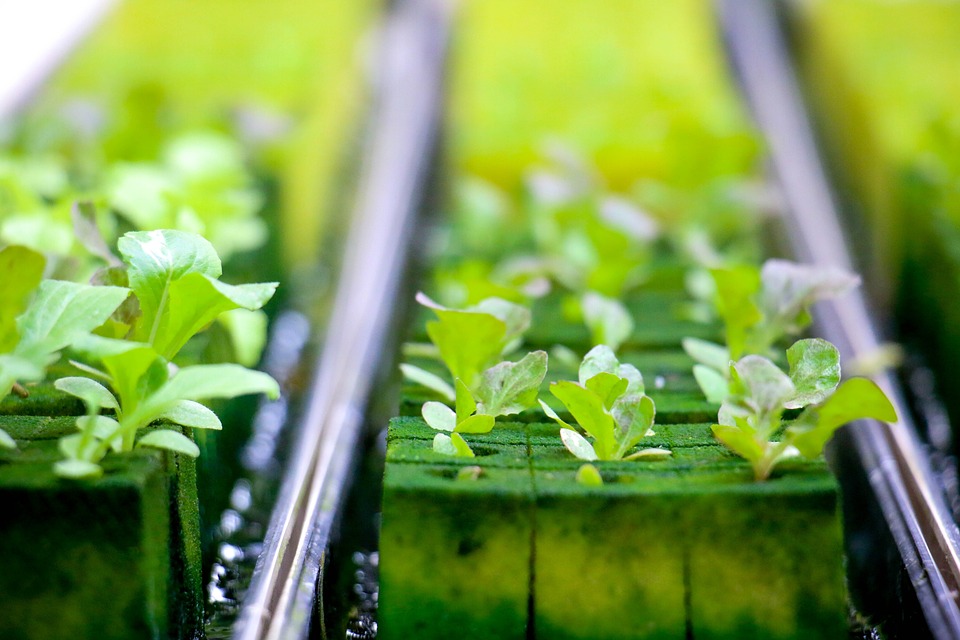Introduction
Gardening has always been a rewarding and enjoyable activity for people of all ages. There’s something incredibly satisfying about nurturing plants from their seedling stage to full maturity. However, traditional gardening methods can be time-consuming, labor-intensive, and subject to unpredictable weather conditions.
That’s where home hydroponic gardens come in. Hydroponics is a soil-less gardening technique that allows you to grow plants in a controlled indoor environment. With a hydroponic system, you can experience the joy of growing your own food all year round, even if you have limited space or unfavorable weather conditions.
Benefits of Home Hydroponic Gardens
There are numerous benefits to growing your food with a home hydroponic garden:
- Space Efficiency: Hydroponic systems require minimal space compared to traditional gardens. They can be set up vertically or horizontally, making them ideal for small apartments, balconies, or even indoor areas.
- Year-round Growing: With a hydroponic garden, you’re not limited to a specific growing season. The controlled environment allows you to cultivate plants regardless of outdoor weather conditions. Whether it’s the dead of winter or scorching summer, you can still enjoy fresh produce.
- Water Conservation: Hydroponic gardens use significantly less water compared to traditional soil-based gardening. The water in the system is recirculated, minimizing waste and promoting sustainability.
- Pest and Disease Control: By eliminating the use of soil, hydroponic gardens are less prone to pest infestations and plant diseases. This reduces the need for harmful pesticides or herbicides, providing you with healthier and safer produce.
- Rapid Growth and Higher Yields: Plants grown hydroponically tend to grow faster and produce higher yields compared to traditional gardening methods. The controlled environment optimizes nutrient uptake, leading to healthier and more vigorous plants.
Getting Started with Home Hydroponics
Starting a home hydroponic garden may seem daunting at first, but it’s actually quite straightforward with the right guidance. Here are a few steps to help you get started:
- Choose the Right System: There are various hydroponic systems available, each with its own advantages and requirements. Common systems include deep water culture, nutrient film technique, and ebb and flow. Consider your space, budget, and the types of plants you want to grow when selecting a system.
- Set Up the System: Once you have chosen a system, assemble and set it up following the manufacturer’s instructions. Ensure that you have the necessary equipment, such as grow lights, pumps, reservoirs, and growing media.
- Select Your Plants: Not all plants are suitable for hydroponic cultivation. Leafy greens, herbs, and certain fruiting plants like tomatoes and peppers thrive in hydroponic systems. Choose plants that are known to perform well in this environment.
- Provide Nutrient Solutions: Nutrients are crucial for the growth of hydroponic plants since they can’t obtain them from soil. Purchase or prepare a balanced nutrient solution containing essential macronutrients and micronutrients. Regularly check and adjust the pH levels of the solution as well.
- Maintain the Garden: Daily maintenance is necessary for a thriving hydroponic garden. Monitor water levels, pH, and nutrient concentration. Prune and trim plants as needed. Keep an eye out for any signs of pests or diseases and address them promptly.
FAQs
Q: How much space do I need for a home hydroponic garden?
A: The space required will depend on the type and size of the hydroponic system you choose. Generally, hydroponic systems take up less space compared to traditional gardens, making them suitable for small living areas.
Q: Can I grow any plant hydroponically?
A: While most plants can be grown hydroponically, certain plants are better suited for this type of cultivation. Leafy greens, herbs, strawberries, tomatoes, and peppers are among the popular choices for home hydroponic gardens.
Q: Do hydroponic gardens require a lot of maintenance?
A: Hydroponic gardens do require regular maintenance to ensure optimal growing conditions. You’ll need to monitor nutrient levels, pH, water temperature, and light exposure. Regular pruning, cleaning, and pest control measures might also be necessary.
Q: Are hydroponic gardens more expensive to set up compared to traditional gardens?
A: Initially, the setup cost for a hydroponic system might be higher compared to traditional gardening tools and soil. However, hydroponic gardens usually result in higher yields, quicker growth, and reduced water usage, which can offer long-term cost savings.
Q: Is it difficult to adjust the nutrient solution for hydroponic plants?
A: Adjusting the nutrient solution for hydroponic plants is relatively simple once you understand the basics. You’ll need to monitor pH levels and ensure all essential macronutrients and micronutrients are present in the solution. Test kits and pH adjusters are readily available to assist you in achieving the optimal nutrient balance.




